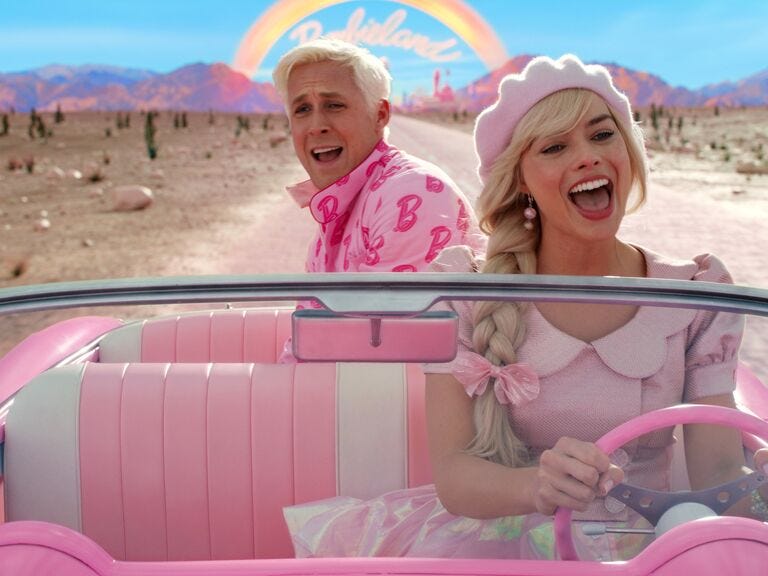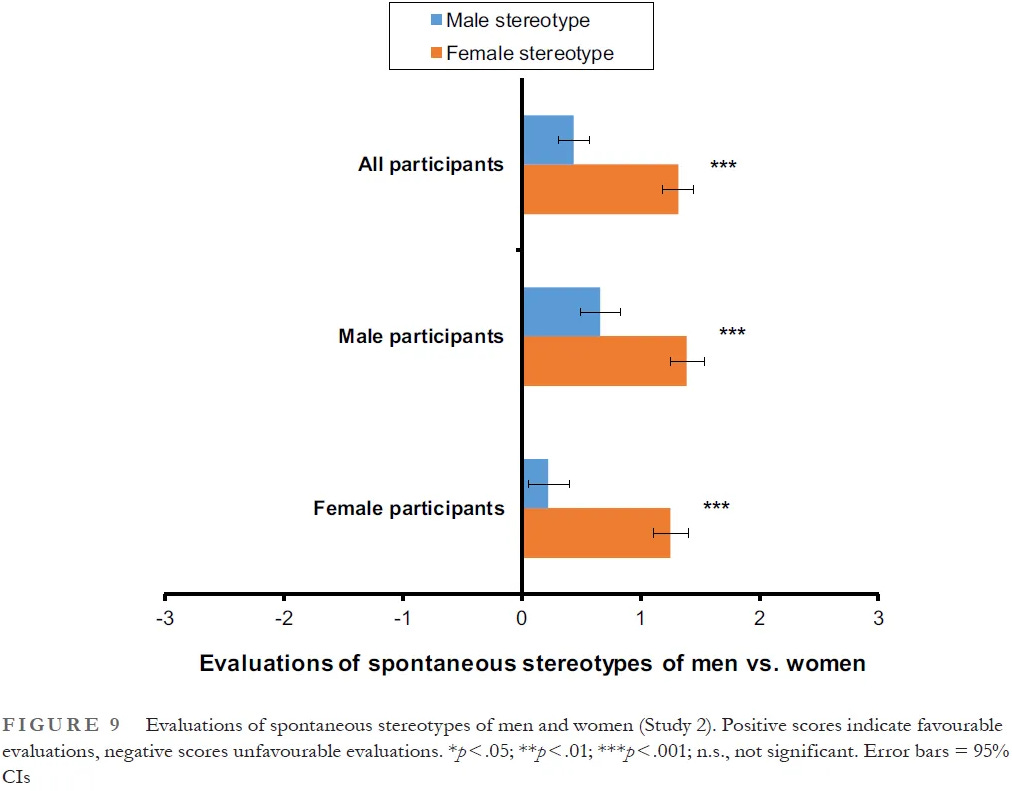Does Everyone Hate Women? Putting the Barbie Hypothesis to the Test
The average person has a fairly positive attitude toward both sexes
The Barbie movie has been back in the news this month as one of the most nominated films in this year’s Golden Globes and Oscars. I enjoyed the movie a lot, but watching it as a psychologist was a little like watching the average sci-fi movie as a physicist: It was hard not to get distracted by errors in the worldview implicit in some of the dialogue.
One example that particularly jumped out at me was when Ariana Greenblatt’s character Sasha stated, matter-of-factly, that “Women hate women. And men hate women. It’s the only thing we all agree on.”
If true, this would be a serious social problem, not to mention a major downer. The good news, then, is that as far as psychological science is concerned, it’s not true. No doubt, some men and women have a generalized disdain for the fairer sex. But the vast majority don’t. In fact, both sexes tend to like the average Barbie more than the average Ken.
This phenomenon is known as the women-are-wonderful effect, and it’s one of the best-replicated findings in social psychology. As it happens, my colleagues and I replicated it recently in a paper looking at people’s reactions to research on sex differences. The figure below shows our results. Scores above 0 indicate a favorable view of men or women; scores below 0 indicate an unfavorable view. The key finding, as you can see, is that both sexes have a more favorable view of women than men: the standard women-are-wonderful effect.
A few other bits and pieces:
Men like women as much as women like women.
Women like men less than men like men.
Women like women more than men like men.
The women-are-wonderful effect is larger for women than men, not because women like other women more than men do, but rather because they like men less.
“Liking men less” doesn’t mean “disliking men.” The average man and the average woman have positive feelings toward both sexes; they just have more positive feelings toward women.
We can’t project the average score onto every member of the group. Although the average person likes women more than men, some individuals like both sexes equally, and some like men more than women: a men-are-wonderful effect. Moreover, although the average person has positive feelings about both sexes, some individuals dislike women, others dislike men - and still others are devoid of gender bias, disliking both sexes equally.
One last thought: As the father of a daughter, I can’t help worrying about the possibly harmful mental-health effects of telling girls and women that everyone hates them - and more generally, of telling them that the world is a terrible place for women. Of course, one line in one movie won’t have any meaningful effect. But the constant drip-drip-drip of such messages might. Needless to say, if such messages were true, we’d have to talk about it and try to remedy it, even if doing so were somewhat depressing. As we’re just seen, though, they’re not always true. And given their potential for harm, perhaps we should be more circumspect about spreading these negative memes without looking at the evidence first. As an added bonus, in doing so, we might also make it easier for psychologists to watch blockbuster movies without mentally rewriting the script!
Further Reading
The paper that the graph comes from is Stewart-Williams et al. (2022), “Reactions to research on sex differences: Effect of sex favoured, researcher sex, and importance of sex-difference domain,” published in The British Journal of Psychology. You can access a free copy here.
On a related topic, check out my earlier post discussing - among other things - the stereotype that feminists hate men.




Why not worry about boys as well? The message that everyone hates boys and men is far more pervasive than the message that everyone hates women. That masculinity is toxic consistent explicit message in a lot of academia - we're not talking about a slow drip of subtle memes.
Has anyone done research on how people rate actual--not theoretical--women? Do they rate actual women in the world as wonderful, or just "ideal" women? Do they think women are wonderful when they are, e.g., seeking power? When women are demanding the right to an abortion? The "women are wonderful" research seems to suffer from many of the same problems as the IAT. How do these ideations translate into the actual treatment of actual women?